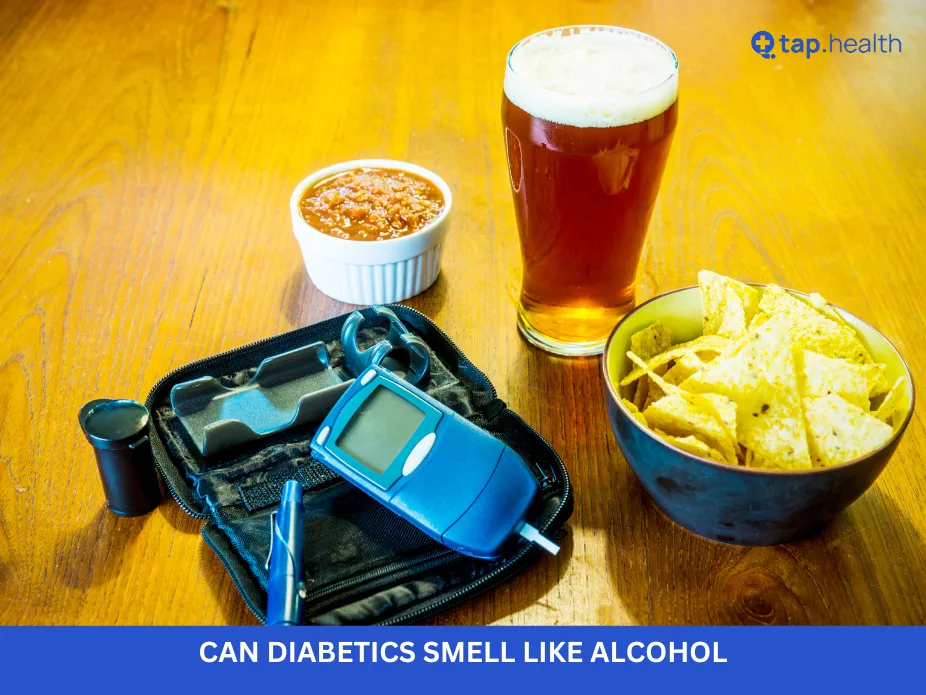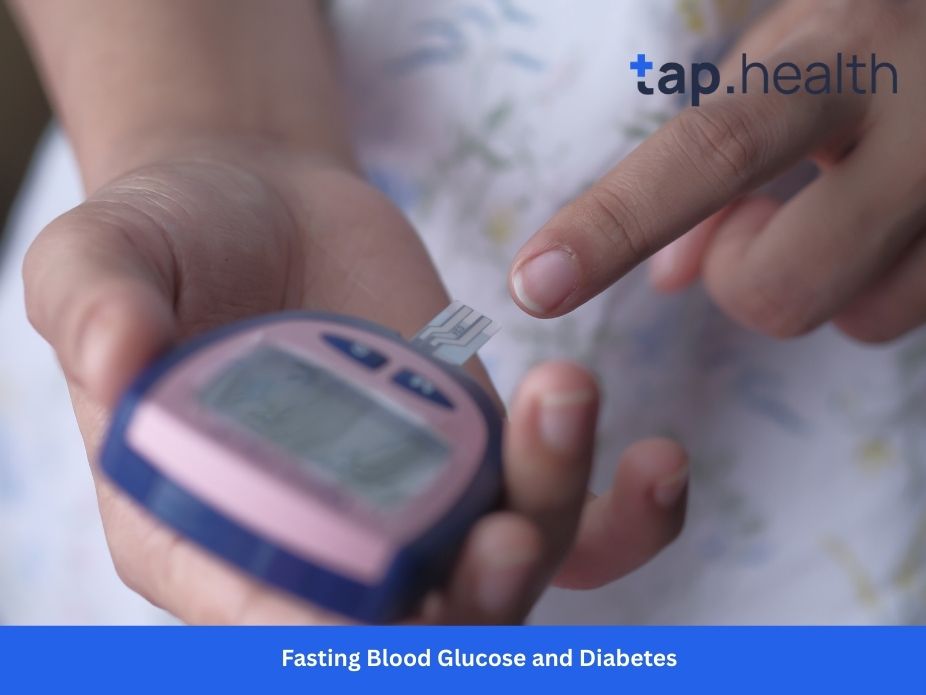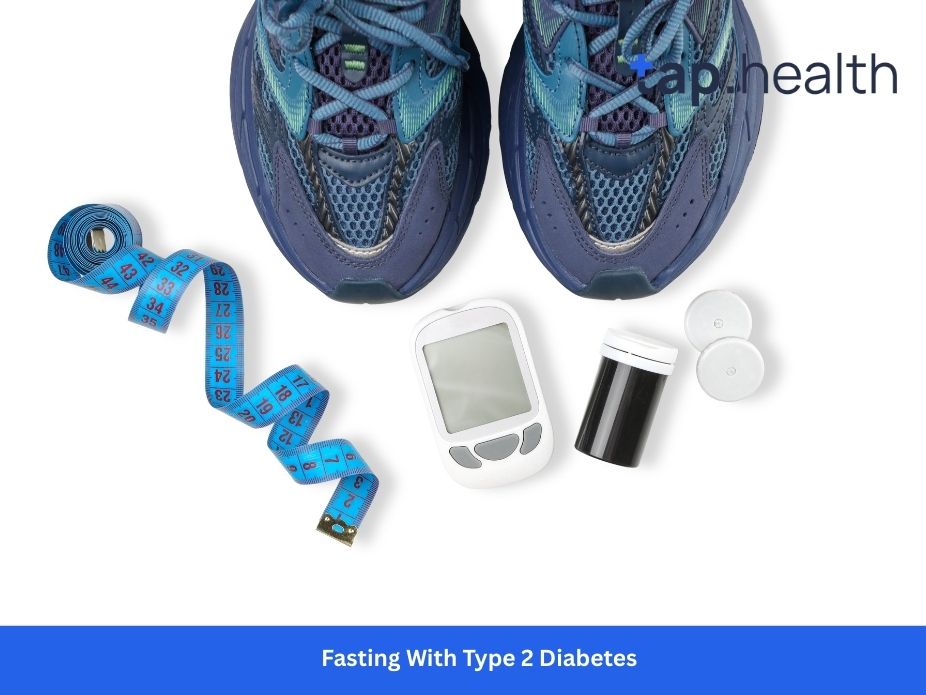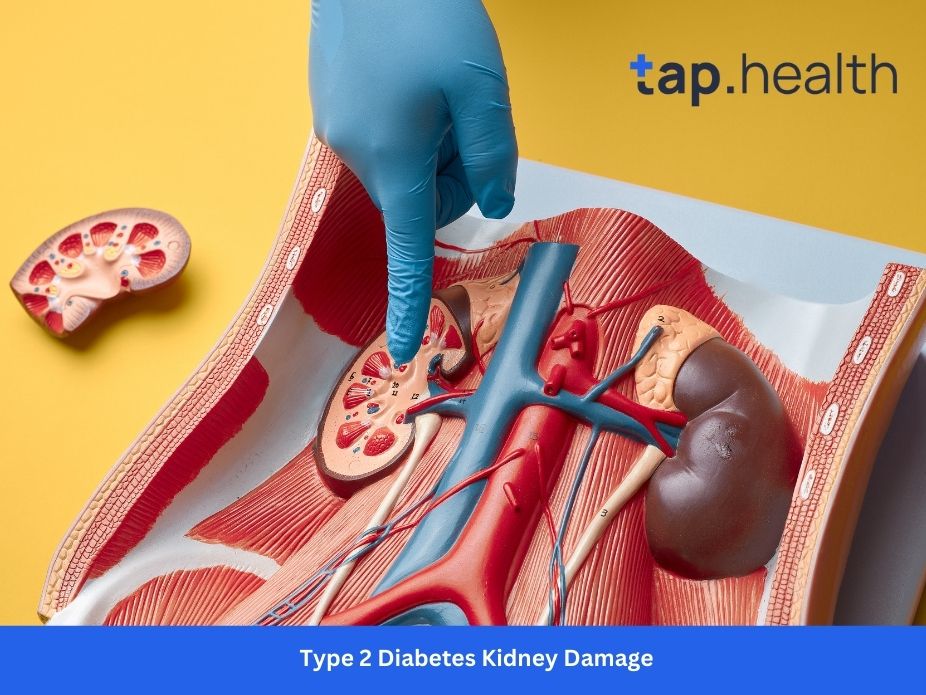If you’ve ever noticed someone with diabetes smelling like alcohol—even though they haven’t had a drink—it’s natural to feel confused or concerned. This unusual odor isn’t just a random quirk. In fact, it can be a serious warning sign of a dangerous condition related to blood sugar imbalance.
So, can diabetics really smell like alcohol? The short answer is yes—but not because they’ve been drinking. The smell often comes from chemicals produced when the body burns fat for fuel instead of sugar, a process that happens when insulin isn’t working properly. This article explains exactly why this happens, what it means for your health, and when you should take action.
We’ll break everything down in simple, clear terms—no medical jargon, no confusing terms. Just the facts you need to understand this strange but important symptom.
Why Do Some Diabetics Smell Like Alcohol?
The alcohol-like smell in people with diabetes isn’t from ethanol (the kind in beer or wine). Instead, it’s caused by ketones, particularly acetone, which is a natural byproduct of fat breakdown.
When your body doesn’t have enough insulin—or can’t use it properly—it can’t turn glucose (sugar) from food into energy. So, it starts burning fat instead. This process, called ketosis, creates ketone bodies: acetoacetate, beta-hydroxybutyrate, and acetone.
Acetone is volatile—it evaporates easily—and is released through your breath and urine. And guess what? Acetone smells a lot like nail polish remover or, to some people, like alcohol.
This is most common in people with Type 1 diabetes, but it can also happen in Type 2 diabetes under certain conditions (more on that later).
What Is Diabetic Ketoacidosis (DKA)?
The Dangerous Link Between Smell and Emergency
The alcohol-like or fruity breath in diabetics is often a red flag for diabetic ketoacidosis (DKA)—a life-threatening complication.
DKA occurs when ketone levels rise too high, making your blood acidic. This usually happens when:
- Blood sugar stays very high (often above 250 mg/dL)
- Insulin levels are too low (missed doses, pump failure, illness)
- The body is under stress (infection, surgery, trauma)
DKA is a medical emergency. If untreated, it can lead to coma or even death.
Common Signs of DKA (Beyond the Smell)
While the breath odor is a key clue, watch for these other symptoms:
- Extreme thirst and frequent urination
- Nausea or vomiting
- Abdominal pain
- Confusion or difficulty concentrating
- Rapid, deep breathing (called Kussmaul respirations)
- Fatigue or weakness
- Dry or flushed skin
If you or someone you know has diabetes and shows these signs—especially with fruity or alcohol-like breath—seek emergency care immediately.
Can Type 2 Diabetics Also Smell Like Alcohol?
Many people assume only Type 1 diabetics are at risk for ketone-related smells. But Type 2 diabetics can also develop this symptom, especially in a condition called ketosis-prone Type 2 diabetes or during severe illness.
While DKA is less common in Type 2, it’s not impossible. Certain triggers can push even a Type 2 patient into ketoacidosis:
- Severe infection (like pneumonia or UTI)
- Heart attack or stroke
- Long-term steroid use
- Pancreatitis
- Extremely high blood sugar for days
In some cases, people are first diagnosed with Type 2 diabetes only after being hospitalized for DKA—showing how serious and unexpected this can be.
So yes, both Type 1 and Type 2 diabetics can smell like alcohol if ketones build up.
Is the Smell Always a Sign of Danger?
Not always—but it should never be ignored.
There’s a difference between nutritional ketosis (a safe, controlled state) and diabetic ketoacidosis (dangerous and uncontrolled).
Nutritional Ketosis vs. Diabetic Ketoacidosis
| Blood sugar | Normal or slightly low | Very high (>250 mg/dL) |
| Insulin levels | Adequate | Very low or absent |
| Ketone levels | Mild to moderate (0.5–3.0 mmol/L) | Very high (>3.0 mmol/L) |
| Blood pH | Normal | Acidic (pH < 7.3) |
| Symptoms | None or mild (e.g., “keto breath”) | Severe (vomiting, confusion, rapid breathing) |
| Common in | People on keto diets | People with insulin deficiency |
If you’re on a ketogenic diet and smell slightly fruity, it’s likely harmless. But if you have diabetes and notice this smell along with high blood sugar or feeling unwell—it’s likely DKA.
Bottom line: Context matters. For diabetics, an alcohol-like odor is almost always a warning sign.
How to Check for Ketones at Home
If you have diabetes—especially Type 1—it’s smart to test for ketones when:
- Blood sugar is over 240 mg/dL for two tests in a row
- You’re sick (even with a cold or flu)
- You feel nauseous, tired, or confused
- Your breath smells unusual
Two Main Ways to Test:
- Urine Ketone Strips
- Cheap and easy to use
- Dip strip in urine, wait for color change
- Shows ketone levels as negative, small, moderate, or large
- Downside: Reflects ketones from a few hours ago, not real-time
- Blood Ketone Meters
- More accurate and up-to-date
- Uses a small drop of blood (like a glucose test)
- Measures beta-hydroxybutyrate directly
- Recommended by doctors for high-risk patients
When to call your doctor:
- Moderate or large ketones in urine
- Blood ketones ≥ 1.5 mmol/L
- Any ketones + high blood sugar + symptoms
Don’t wait. Early action can prevent hospitalization.
Other Reasons Diabetics Might Have Unusual Breath Odors
While acetone is the main culprit behind the alcohol-like smell, other factors can change breath odor in people with diabetes:
1. Dry Mouth (Xerostomia)
High blood sugar pulls fluid from tissues, including saliva glands. Less saliva means more bacteria in the mouth, leading to bad breath (halitosis) that smells sour or rotten—not like alcohol, but still unpleasant.
2. Gum Disease (Periodontitis)
Diabetes increases the risk of gum infections. These can cause foul-smelling breath due to bacterial overgrowth and tissue decay.
3. Medication Side Effects
Some diabetes medications (like metformin) can cause a metallic taste or mild odor, though not typically alcohol-like.
4. Liver or Kidney Issues
In advanced diabetes, organ damage can alter body chemistry and breath smell. For example, kidney failure may cause an ammonia-like odor.
Key takeaway: If the smell is fruity, sweet, or like nail polish remover, think ketones. If it’s rotten, sour, or metallic, consider oral health or other complications.
Can Non-Diabetics Smell Like Alcohol Without Drinking?
Yes—but it’s rare and usually tied to other conditions.
- Alcoholic ketoacidosis: Heavy drinkers who stop eating may develop ketones and acetone breath—even without diabetes.
- Starvation ketosis: Prolonged fasting or extreme dieting can cause mild ketosis and a faint fruity smell.
- Rare metabolic disorders: Conditions like maple syrup urine disease (in infants) cause unusual odors, but these are diagnosed early in life.
However, in adults with no history of diabetes, an alcohol-like smell without drinking should still prompt a medical checkup—especially if paired with fatigue, weight loss, or frequent urination (possible undiagnosed diabetes).
What Should You Do If You Notice This Smell?
If you or someone you care about has diabetes and smells like alcohol or nail polish remover:
Step 1: Check Blood Sugar
Use a glucose meter right away. Is it high (over 240 mg/dL)?
Step 2: Test for Ketones
Use urine strips or a blood ketone meter.
Step 3: Hydrate and Take Insulin (If Prescribed)
- Drink water to flush out ketones
- Take your rapid-acting insulin as directed by your doctor (do NOT skip doses)
Step 4: Monitor Symptoms
If you develop nausea, vomiting, confusion, or trouble breathing—go to the ER immediately.
Step 5: Call Your Healthcare Team
Even if you feel okay, report moderate ketones or persistent high blood sugar. They may adjust your treatment plan.
Never ignore this smell in someone with diabetes. It’s one of the clearest early warnings of DKA.
Preventing Alcohol-Like Breath in Diabetics
The best way to avoid this symptom is to prevent ketone buildup in the first place. Here’s how:
Stick to Your Insulin Routine
- Never skip doses
- Store insulin properly (not too hot or cold)
- Check expiration dates
Monitor Blood Sugar Regularly
- Test more often when sick, stressed, or off-routine
- Use a continuous glucose monitor (CGM) if possible
Stay Hydrated
- Drink plenty of water daily
- Dehydration concentrates ketones and worsens DKA risk
Manage Illness Aggressively
- Have a “sick day plan” from your doctor
- Check ketones at the first sign of fever, vomiting, or infection
Eat Consistently
- Avoid skipping meals
- Balance carbs, protein, and fat to stabilize blood sugar
Prevention is far easier—and safer—than treating full-blown DKA.
Real-Life Stories: When Breath Saved a Life
Many people have shared how noticing an odd smell led to a life-saving diagnosis.
- Sarah, 28: “My roommate kept saying I smelled like ‘booze’ after workouts. I thought she was joking—until I passed out. Turned out I had undiagnosed Type 1 diabetes and was in early DKA.”
- James, 52: “After the flu, my breath smelled sweet. My wife made me test ketones—levels were off the chart. We went straight to the ER. The doctor said we caught it just in time.”
These stories show that smell can be a silent alarm. Trust your nose—and act fast.
Myths vs. Facts: Clearing Up Confusion
Let’s bust some common myths about diabetes and breath odor.
Myth: “If you smell like alcohol, you must be drinking.”
Fact: Acetone from ketones mimics alcohol smell—no drinking required.
Myth: “Only Type 1 diabetics get DKA.”
Fact: Type 2 diabetics can develop DKA, especially during illness.
Myth: “Ketones are always bad.”
Fact: Ketones are normal in small amounts. Danger comes from high levels + high blood sugar.
Myth: “Breath smell isn’t a reliable sign.”
Fact: Fruity or acetone breath is a classic, well-documented symptom of DKA.
Knowing the truth helps you respond wisely—not with fear, but with action.
When to See a Doctor (Even If You Feel Fine)
Don’t wait for severe symptoms. Schedule a visit if:
- You have diabetes and notice a persistent fruity or alcohol-like breath
- Your blood sugar is frequently high despite medication
- You’re losing weight without trying
- You feel unusually thirsty or tired
Early intervention can prevent emergencies. And if you don’t have diabetes but notice these signs, ask your doctor about screening—you might have undiagnosed diabetes.
Real-Life Scenario
Imagine a person with type 1 diabetes skipping meals and insulin doses. Friends notice a sweet, fruity, or alcoholic smell on their breath. This could indicate that their body is producing excess ketones—a warning sign that requires immediate medical attention.
Expert Contribution
Endocrinologists explain that the alcohol-like smell in diabetics’ breath is not due to drinking alcohol, but rather due to ketone buildup in the blood. It’s most common in type 1 diabetes but can also occur in type 2 diabetes during severe hyperglycemia. Other symptoms may include nausea, vomiting, rapid breathing, and fatigue.
Recommendations Grounded in Proven Research and Facts
- Monitor blood sugar levels regularly to prevent high ketone production.
- Check for ketones in urine or blood if unusual breath odor occurs.
- Stay hydrated and follow prescribed insulin or medication routines.
- Seek medical help immediately if fruity or alcohol-like breath is accompanied by other symptoms such as vomiting, confusion, or rapid breathing.
- Educate caregivers to recognize the smell as a potential warning sign of diabetic ketoacidosis.
Final Thoughts: Smell as a Silent Signal
Your breath is more than just a social concern—it can be a window into your metabolic health. For people with diabetes, an alcohol-like or fruity odor isn’t just odd; it’s often the body’s cry for help.
While it’s scary to think about, knowing what this smell means puts you in control. You can test, treat, and prevent serious complications before they escalate.
So, can diabetics smell like alcohol? Yes—but it’s not about drinks. It’s about ketones, insulin, and balance. And with the right knowledge, you can stay safe, healthy, and confident in managing your condition.
Alcohol-Like Breath in Diabetes: Tap Health Helps You Track the Cause
Tap Health helps you stay in control before things reach that stage by:
- Continuous glucose monitoring insights – See patterns in your blood sugar before they become dangerous.
- AI-driven alerts and reminders – Get notified when your glucose readings are trending high or low.
- Personalized food and lifestyle suggestions – Manage your meals, hydration, and activity to prevent ketone buildup.
- 24/7 virtual support – Tap Health’s intelligent assistant helps you understand your readings and take the right steps fast.
By tracking your sugar levels and receiving tailored guidance daily, Tap Health helps reduce the risk of complications like ketoacidosis — keeping you healthier, safer, and more in control.
Frequently Asked Questions (FAQ) on Can Diabetics Smell Like Alcohol?
Q1: Does smelling like alcohol mean I have diabetes?
Not necessarily—but it could be a sign, especially if you also have excessive thirst, frequent urination, unexplained weight loss, or fatigue. See a doctor for blood tests (fasting glucose, HbA1c) to confirm.
Q2: Can high blood sugar cause an alcohol-like smell?
High blood sugar alone doesn’t cause the smell. But when high blood sugar combines with low insulin, the body makes ketones—which produce the acetone odor.
Q3: Is fruity breath the same as alcohol breath in diabetics?
Yes. Many people describe the smell as “fruity,” “sweet,” or “like nail polish remover.” Others say it resembles alcohol. All refer to acetone from ketones.
Q4: How quickly can DKA develop?
DKA can develop in as little as 24 hours, especially during illness or missed insulin. Symptoms can worsen rapidly—within hours.
Q5: Can I treat ketones at home?
Mild ketones with normal blood sugar may resolve with hydration and rest. But moderate or large ketones with high blood sugar require medical attention. Never try to “tough it out.”
Q6: Do ketone strips expire?
Yes. Urine ketone strips typically last 6 months after opening. Store them in a cool, dry place and check the expiration date. Expired strips give false results.
Q7: Can children with diabetes smell like alcohol?
Absolutely. In fact, DKA is a common way Type 1 diabetes is first diagnosed in kids. Parents should watch for unusual breath, vomiting, and extreme tiredness.
Q8: Will drinking water get rid of the smell?
Water helps flush ketones and may reduce the odor over time—but only if the underlying cause (like missed insulin) is fixed. Water alone won’t stop DKA.
Q9: Is there a difference between keto breath and diabetic breath?
“Keto breath” from dieting is mild and harmless. “Diabetic breath” (from DKA) is stronger, comes with high blood sugar, and is dangerous. Context is key.
Q10: Should I go to the ER if I smell like alcohol but feel fine?
If you have diabetes, test your blood sugar and ketones first. If either is high, contact your doctor—even if you feel okay. DKA can progress silently at first.
Q11: What medical condition can make you smell like alcohol?
A few medical conditions can cause your breath or body to smell like alcohol even if you haven’t been drinking. One common cause is diabetic ketoacidosis (DKA) — a serious complication of diabetes where the body breaks down fat too quickly, producing ketones that give off a fruity or alcohol-like odor.
Other possible causes include liver disease, kidney problems, or certain metabolic disorders. If you notice this smell without alcohol use, it’s important to see a doctor right away.
Q12: What do you smell like if you have diabetes?
People with uncontrolled diabetes may sometimes have a fruity or sweet smell on their breath. This happens when the body produces ketones due to a lack of insulin. The scent can resemble acetone or nail polish remover.
Body odor can also change slightly because of high blood sugar, which encourages bacterial growth on the skin. Proper diabetes management usually helps prevent these smells.
Q13: What are 5 early warning signs of diabetes?
The early signs of diabetes are often subtle but important to catch early. Five common warning signs include:
- Increased thirst and frequent urination
- Unexplained weight loss
- Extreme fatigue or weakness
- Blurred vision
- Slow-healing wounds or frequent infections
If you experience these symptoms, it’s important to get your blood sugar tested as soon as possible.
Remember: Your body speaks in signals. An unusual smell might be its way of saying, “Pay attention.” Listen closely, act wisely, and never hesitate to seek help.



